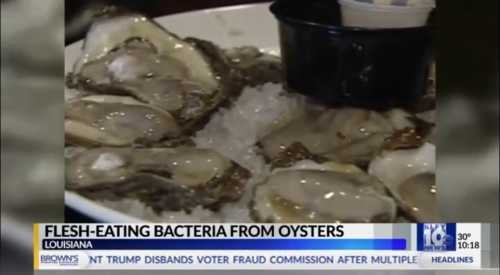Which fruits & vegetables are most important to go organic - EWG says strawberries first this year
EWG (the Environmental Working Group) has put out their annual list for which fruits and vegetables they found to have the most pesticide residue, termed the “Dirty Dozen”:
1. Strawberries
2. Apples
3. Nectarines
4. Peaches
5. Celery
6. Grapes
7. Cherries
8. Spinach
9. Tomatoes
10. Sweet bell peppers
11. Cherry tomatoes
12. Cucumbers
For the last five years apples were #1, but now it's strawberries, apples #2. So you would most likely benefit the most from buying these items organic if you were choosing.
EWG's “Clean Fifteen” lists the fruits and vegetables that had the least pesticides in them and you can safely eat with minimal concern for pesticides:
How important is it to buy organic for healthy living? It's more important to make sure you eat fruits and vegetables, says Dr. Jennifer A. Lowry, section chief of toxicology at Children’s Mercy in Kansas City and chair to the Council on Environmental Health for the American Academy of Pediatrics (AAP):
“If a bug landed on your strawberry it’s not going to taste any different and it actually might be healthier because it wouldn’t have pesticides,” she said.
According to Lowry, pesticides are mostly used for cosmetic reasons, to make our food prettier.
“If you can afford organic, great, but if you can’t, then you need to get it in any way you can, whether it’s in a can, frozen, or fresh,” Lowry said.
“If I have the choice between eating the red, shiny [non-organic] strawberry or no strawberry, I’m going to eat the strawberry, and I’m going to tell my patients to eat the strawberry,” Lowry told ABC News.
(via "The 'Dirty Dozen' Produce Named Worst for Pesticide Exposure", ABC News)
How much pesticides are in non-organic fruits and vegetables? In 2012 tests by the FDA (U.S. Food and Drug Administration) had about 70 percent of fruits and 61 percent of vegetables grown in the U.S. with detectable levels of pesticide residues. And 98 percent of fruits and 95 percent of vegetables were below legal limits set by the EPA (U.S. Environmental Protection Agency).
How safe are non-organic fruits and vegetables? According to the ABC news article:
While some shoppers are clamoring for organic produce and avoiding pesticides, the health effects of buying organic are still unclear. Prior studies have associated pesticides with poor health outcomes like cancer in children, behavioral problems, and even lower cognitive function. But a review of prior research, published in 2012 in The Annals of Internal Medicine, found a lack of strong evidence that eating organic foods led to better health.
The American Academy of Pediatrics (AAP) refers pediatricians and parents to the EWG for information when looking to reduce pesticide exposure. However, they explicitly state that it is more important for children to eat a wide variety of produce, conventional or organic. They also encourage washing produce thoroughly.
EWG's full list, from most pesticides to least:
* A small amount of sweet corn, papaya and summer squash sold in the United States is produced from GE seedstock. Buy organic varieties of these crops if you want to avoid GE produce.



 Report a concern
Report a concern

 Add Comment
Add Comment




Pesticides are the one which is very much effective in controlling pests and they are used widely by farmers and homeowners all over the world. The uses of pesticides should be encouraged by health departments so that it should hardly leave any side effects on human health. Still, today most of the Ocean County pest control http://www.eg-exterminatorsnj.com/About-Us.html who uses eco-friendly pesticides which are harmless to human beings and are effective in controlling pests of all kinds.